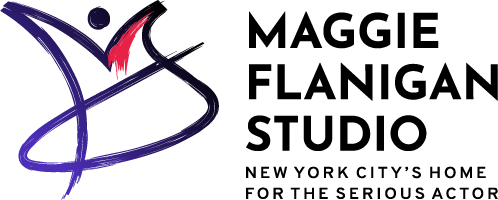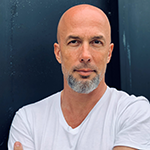APPLY FOR ADMISSION
FIRST YEAR MEISNER ACTING PROGRAM

BEGINS
SEPTEMBER 10TH

Call To Schedule an Interview
(917) 794-3878
The Role of Repetition Exercise in Acting within the Meisner Technique
The repetition exercise in acting stands out as a pivotal cornerstone of the Meisner acting technique. Developed by the legendary Sanford Meisner, this exercise is more than just rote practice. Instead, it is the seed for a sophisticated improvisation exercise that eventually instills in the student all of the fundamentals of acting.
As we explore the essential components of the beginning of Meisner training, we will look at the importance of listening, the value of spontaneity, and the necessity of getting the attention off of yourself and onto your acting object. These are the bricks that will eventually lay the foundation for a solid-acting process.
Are you ready to experience a transformative journey that not only hones your craft but also defines your essence as a performer? Dive in, and uncover the enchantment of repetition in acting.
Key Takeaways
- The Meisner Technique’s repetition exercise immediately helps the student actor to get out of their heads, fully present in the moment, and actively listening to not only what is being said, but how you are being talked to. In life, we miss moments all of the time, but acting on stage and on camera requires immense concentration. A missed moment can derail an entire scene.
- By being fully present and in the moment, the actor’s instrument can begin to open up, allowing for empathy and vulnerability to emerge. This is a slow process, where the repetition exercise will begin to chisel away at the walls and defenses that have taken decades to form.
- Created by Sandy Meisner at the Neighborhood Playhouse in the 1930s, the Meisner approach emphasizes listening, concentration, spontaneity, and the forging of an inviolate sense of truth.
The Meisner Repetition Exercise Explained
Sanford Meisner, a visionary acting teacher from the legendary Group Theater, revolutionized the world of acting with the Meisner Technique. Central to this method is the Meisner repetition exercise, a transformative approach that has shaped the craft of countless trained actors, from Diane Keaton to Sam Rockwell.
But the big question is, what makes the repetition exercise so powerful, and how do they contribute to an actor’s craft?
The Meisner repetition exercise is seemingly simple on its face. Two actors stand across from each other, both are still, fully present, and connected with the other. That alone is an unsettling place to begin. Very rarely are we fully present, with eye contact, not only taking in the other but also allowing yourself to be seen. This is the beginning of vulnerability, and it is the starting place of the work.
From there, one person starts the repetition exercise. It begins with a point of view about something you see in the other person. An opinion you have, and this could be positive or negative. The important thing is that it’s truthful and spontaneous.
At this point, Meisner’s repetition begins. It’s essential to point out how crucial the initial impulse is to the actor’s development. Point of view is essential for any serious artist. In acting, one is ultimately required in every moment. Developing and sophisticating your point of view is a key cornerstone to the first year of Meisner training.
The real brilliance in Meisner’s repetition exercise is what it helps the actor achieve. The repetition instantly gets the actor out of their head and onto their spontaneous impulses. Act Before You Think was one of Meisner’s famous quotes, and it was a sign that hung behind his teaching desk.
The uniqueness and authenticity for anyone lie in the ability to respond before editing, judging, or withholding. We are taught in life to “think before you speak,” and to “choose your words wisely.” An actor cannot work this way. So the beginning repetition exercise challenges the actor to sacrifice politeness for truth. This is far more difficult than you might initially believe.
As Meisner’s exercise continues in its early stage, the emphasis starts to turn toward subtext. Acting, at its core, is a subtextual experience. This is also true in life. What a person says and what they mean are often completely different. How you are being treated is everything, and the repetition exercise begins training the actor to respond personally to subtext, to the meaning of the moment.
Just think about the number we can do on ourselves as it pertains to texts and emails. We can become obsessed with trying to interpret the meaning of a text. Are they mad? Are they flirting with me? Was that a dig? This is because we do not have the person’s subtext. That can only come from hearing how something was said. A good actor is malleable to the nuance of another person’s behavior.
Benefits and Impact of the Repetition Technique for Professional Actors
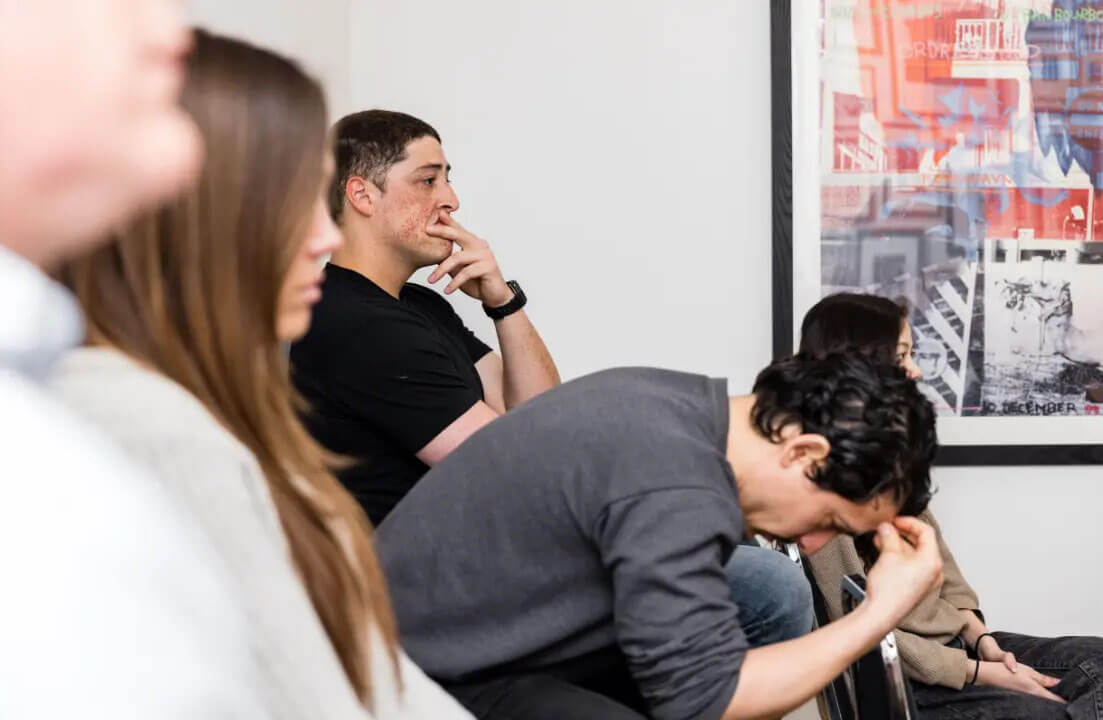
In the universe of acting techniques, Sanford Meisner’s first-year repetition exercise stands as a testament to the importance of fundamentals. Developed by the iconic acting teacher Sanford Meisner, this exercise can turn the dedicated student into a solid, consistent actor.
Cultivates Genuine Listening Skills
Listening is the bedrock of acting. Most actors don’t listen, they wait for their cues, responding only on their line with affected line readings. This is the lowest and most amateurish reflection of the craft. Acting takes place from unanticipated moment to unanticipated moment. The need for spontaneity, surprise, and curiosity is paramount.
Meisner’s first-year repetition helps the actor work with these qualities. In order to create the flawless illusion of life, an audience must believe that what is happening on camera or on stage has never happened before. It’s happening right now, for the first time. This needs to be something fundamental for an actor. If you can’t do this, you will not have a career.
Enhances Presence
What is presence? It is an important quality for the actor. Presence requires an ability to get the attention off of yourself and onto the other person, or onto what you are doing.
Self-consciousness will not foster presence. An actor who is completely in the present moment, fully engaged in an empathic connection, listening intently, responding personally and spontaneously has presence. It can be taught, and the Meisner repetition progression makes this second nature for the actor.
Fosters empathy and vulnerability
We are all parented, educated, and socialized. We have acquired many ways to keep ourselves safe and protected from pain. These are forged over decades, and the traumas we absorb from childhood can make us very blocked and detached.
If you want to be a serious professional actor, you will need to chisel away and undo these, so that your empathy, and your humanity can begin to surface. This is one of the incredible results of the repetition exercise.
By breathing in and repeating from a personal place, by truly letting the other actor land on you, these walls will crumble. It doesn’t happen overnight, it takes months of courageous work, but it will happen.
Eliminates Overthinking
Art is not intellectual, it comes from the primitive unconscious and the imagination. The first challenge of the Meisner repetition exercise is to get out of your head and into your heart.
You cannot think and experience, so if you want to be an actor who works from a deeply experiential place, then freeing you from the logical, measured, edited part of you is a must.
This is what the repetition does, as the student will never have to think about what to say. As any respected Meisner teacher will say, “When in doubt, repeat.” interactions.
Deciphering Subtext with Ease
Subtext is everything. The meaning of a moment in a script is not just about the line itself, but how it is said to you. Someone might say to you, “ I like that shirt on you.” The meaning is not with the literal line, but how it’s said to you. A slight whiff of insincerity, or the roll of an eye changes everything.
Meisner training focuses intently on the ability to respond in every moment from a personal place. This is what will keep a performance fresh take after take or night after night. Responding to the living moment, as opposed to just acting at the other person regardless of how you are being treated. This also is incredibly amateurish.
Beyond Repetition: The Evolution of an Actor
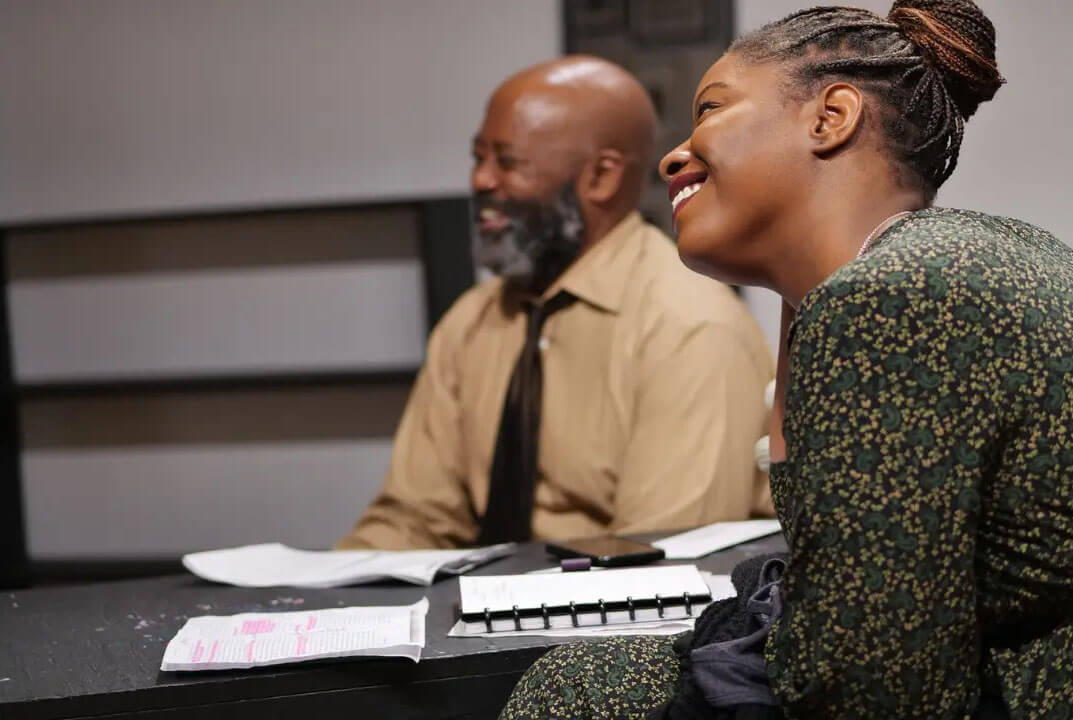
In the dynamic landscape of acting, the repetition exercise emerges as a fundamental stepping stone. Designed with the ingenuity of the Meisner technique, it fosters a truthful connection between two actors, where listening, empathy, vulnerability, and spontaneity are the core fundamental qualities of how an actor operates.
Sanford Meisner, the creator of this profound acting technique, believed that actors should be fully present, and in the moment. Once these early fundamentals are established, the first-year Meisner repetition evolves into something more sophisticated.
As actors develop through this exercise, they not only hone their listening skills but also cultivate an ability to fully immerse themselves in imaginary circumstances. On top of that, they are able to engage with fellow actors in a scene with authenticity.
This method, rooted in the teachings of the Neighborhood Playhouse and Meisner’s unique vision, ensures that actors aren’t just executing a technique but developing their craft. This prepares them for taking these important skills and applying them to scripted scenes.
Navigating the Next Phases: Deepening Mastery in the Meisner Technique
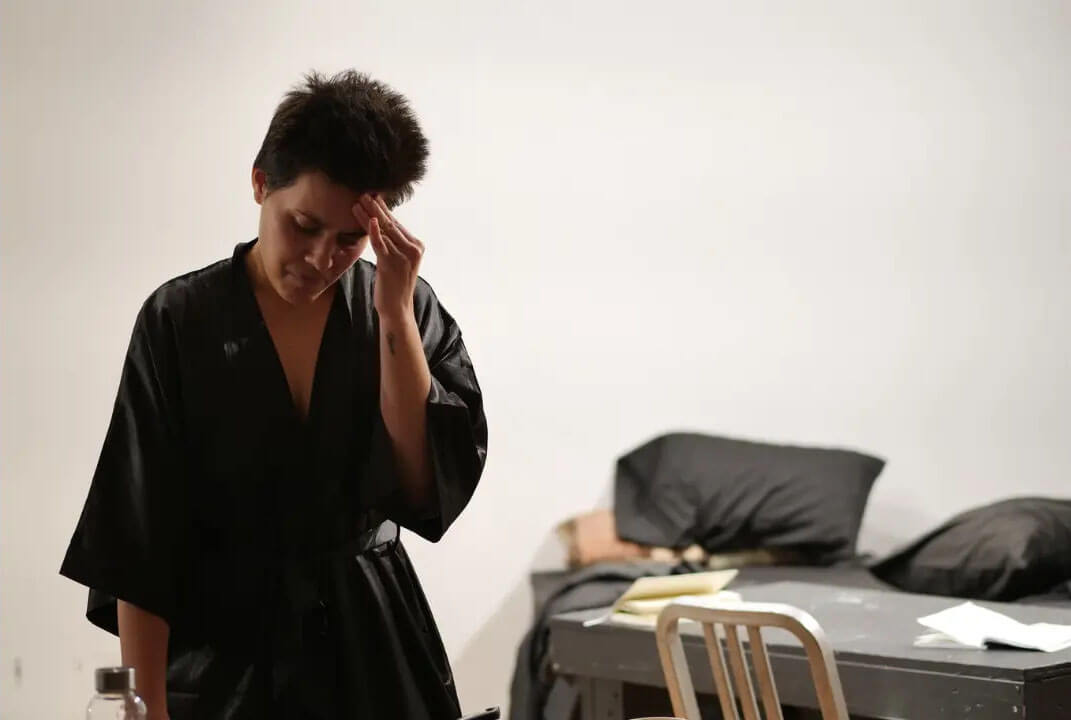
The repetition exercise is only the beginning. After mastering the most basic fundamentals, the exercise begins to evolve, adding an independent activity, and teaching the students how to craft in a simple, specific and personal way.
Sanford Meisner created a structured approach where each stage builds upon the last. As actors progress, they’ll further hone their ability to genuinely connect with the other actor. This enhances their craft in ways that other methods, such as method acting, might not emphasize. Meisner meticulously designed this progression to ensure actors not only develop their skills but also develop into a vivid, compelling, and interesting actor—someone who is fully present in each moment.
While the teachings of Stella Adler and Lee Strasberg definitely bring value, the distinct focus of the Meisner training teaches crafting and the ability to do truthfully with independent activity, accessing emotional depth, and bringing that authentic, experiential scene work. This progression ensures that by the journey’s end, an actor is capable of creating organic, vivid, fully realized human behavior.
Celebrated Actors and The Meisner Technique
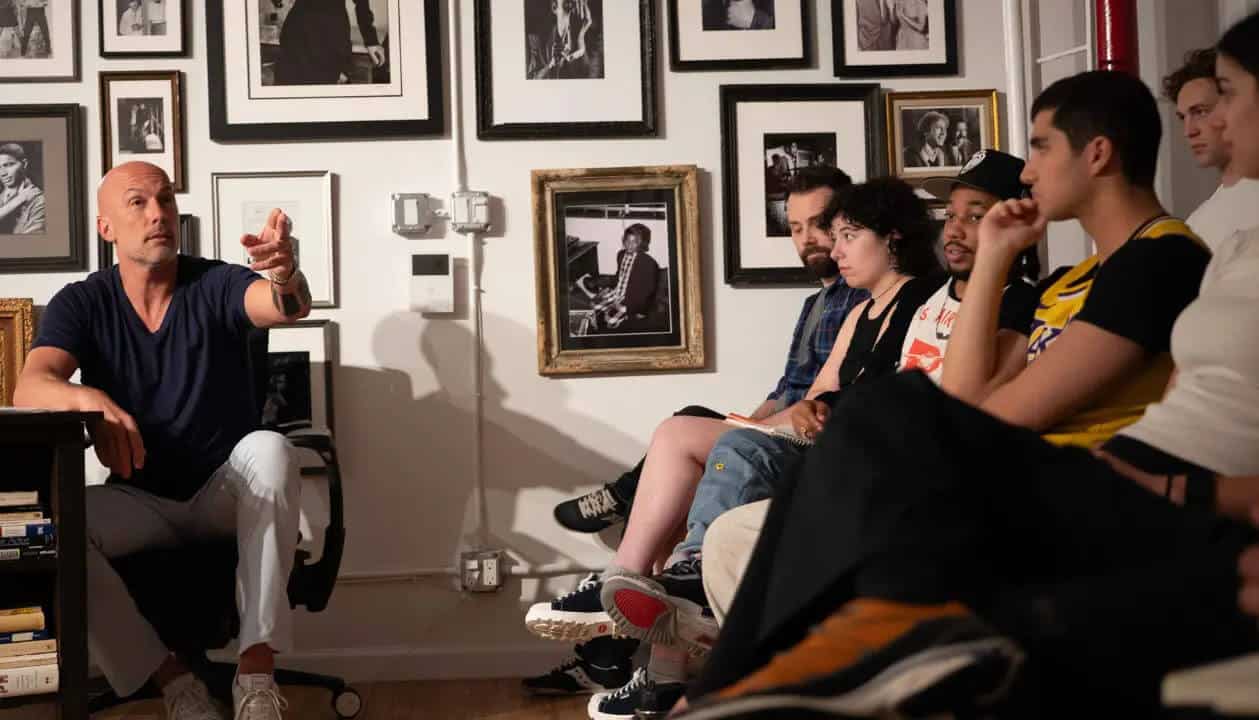
Pioneered by Sanford Meisner, this method emphasizes organic experience, the reality of doing, and the power of the imagination. A testament to the efficacy of Meisner’s teachings is the illustrious list of alumni who have carved out substantial careers as first-rate actors.
Names such as Gregory Peck, Joanne Woodward, and Steve McQueen, among others, were trained in this acting technique. Any art form requires craft and technique, and Meisner training will provide any serious actor with a consistent way of working whether it’s on-stage or on camera. It is a foolproof way of creating behavior.
Summary
Sanford Meisner, a member of the Group Theater, introduced the groundbreaking Meisner Technique to the acting world. Central to his method is the repetition exercise, pushing actors to profound depths of human understanding and emotional connection.
Through this technique, actors are immersed in the present. They connect authentically with their scene partner and respond to imaginary circumstances with genuine emotion.
The brilliance of the Meisner Technique and repetition exercise lies in its emphasis on authentic, in-the-moment reactions, setting them apart from other acting methodologies.
Maggie Flanigan Studio: Elevating the Art of Acting through Repetition Exercise
At its core, the repetition exercise, the core component of the Meisner technique, is a game-changer for actors. It unlocks an actor’s authenticity and frees them from the constraints of their logical minds.. This method emphasizes living in the present moment, ensuring that every performance never feels rehearsed.
Here at Maggie Flanigan Studio, we provide an unparalleled environment for mastering this exercise. Dedicated to guiding actors in refining their craft, our team ensures that every actor’s journey is both transformational and enriching.
Ready to embrace this evolution in your acting craft? Call us today and let us guide your path.
Frequently Asked Questions
Why is repetition important in actor training?
Repetition, central to the Meisner technique, is crucial in getting an actor out of their head, onto their spontaneous impulses, freed from the constraints and limitations of the literal and logical. The exercise trains the actor to be fully present, spontaneous, surprised and curious from moment to moment. It develops an incredibly present actor.
How is repetition used in drama?
This training is not for a specific medium or genre. The Meisner Technique teaches you how to create organic, vivid, human behavior. Acting is acting, whether it’s on-stage or on-camera, whether it’s comedy, drama, period style, or farce. Human behavior is universal, and indeed there are certain adjustments that need to be made depending on the medium and material. A well-trained Meisner actor, depending on talent, that cannot be controlled, should be able to do anything.
What is an example of a repetition exercise?
A classic repetition exercise involves two actors: One initiates by initiating a spontaneous opinion about something they see on the other, and then the repetition begins, not in a mechanical way, but with spontaneity and surprise.
Recent Post
STUDENT TESTIMONIALS
“I was placed in the intense reigns of Charlie Sandlan. I became a better artist, actor, friend, sibling and daughter because of the studio. Even now, I crave the studio every day. What I learned is present in my work every day. I truly believe in everything they stand for.”

“Maggie taught me that I could control my work, my acting, and to throw all of the bullshit out that I had in my head about ‘what I should be doing’ and to just listen and respond honestly, in the moment. She gave me a craft. She is, quite simply put, THE BEST.”
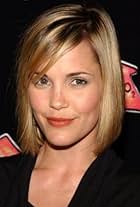
“Maggie Flanigan taught me the true meaning of artistry, passion, and professionalism. I am certain that I continue to work as an actress because of my training with Maggie. At every audition and every performance, her guiding voice is with me. It is a gift beyond measure.”

“Maggie Flanigan is uncompromising, her instincts as a teacher are razor sharp. She doesn’t miss a beat”

“Maggie Flanigan has been one of the most important people in my artistic life. I want to work with Maggie trained actors. As an actor myself, she is my first source. I do not say this lightly, if you are serious about acting, and willing to work very hard, then go to Maggie.”

“Maggie helped me find my sense of truth, an actors greatest asset. Maggie is an expert at instilling that vital ingredient, which allows an actor’s potential to become limitless. My work will forever be rooted in the clarity and honesty she helped me develop.”

“After working for ten years, I did the 2 year program, and now feel that I have the tools I need to become the actor I’ve always dreamed of being. Maggie Flanigan instilled in me a clear sense of truth and a standard of perfection. I am a better actor because of this studio.”

“As an actor, the core of what you have to rely on is your sense of truth and humanity. Maggie allowed me to discover and embrace mine. Trusting my sense of humanity and truth has given me the ability to take risks in my work and my career decisions.”

“Maggie Flanigan has the unique ability to get an actor to the essence of what is true in a moment. She creates a safe and caring environment in which to work.”

“Maggie Flanigan introduced me to my own spirit and my own sense of Truth. Her passion for teaching and ability to communicate are rare gifts to any actor looking for a technique to set his or her talent free. Maggie’s voice has been the one constant guide in my career.”

